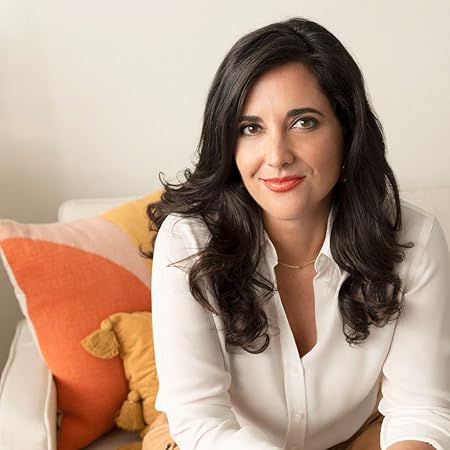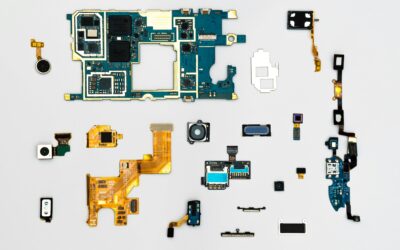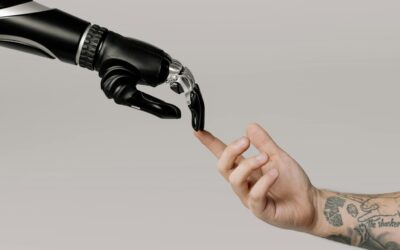Getting What You Need with Elizabeth Husserl
The pursuit and acquisition of money only goes so far. Elizabeth Husserl talks about how to make sure you’re getting what you need!
Listen to us On
About the Episode
We focused on getting what you need, how all human needs are universal but how we meet them is highly personal, understanding the different ways we meet our needs and how to synergize your satisfaction, and how to get started, with Ellizabeth Husserl, Financial Advisor, author, and speaker.
Listen to hear a difference-making tip on how to check in on your level of satisfaction every day!
You can learn more about Elizabeth at ElizabethHusserl.com, and LinkedIn.
Get your copy of The Power of Enough here:
Did you get anything out of this episode? Do us a solid and leave a review:
https://ratethispodcast.com/alignedmoneyshow
Learn more and engage at MoneyAlignmentAcademy.com, Twitter, LinkedIn, Instagram, YouTube and Facebook.
Buy George G a coffee (he loves coffee)
https://www.buymeacoffee.com/lifeblood
Have George G speak
https://moneyalignmentacademy.com/speaking/
Financial literacy and wellness for individuals, families, and companies
https://moneyalignmentacademy.com/
Find George G’s books here
The Aligned Money Show is the podcast for Money Alignment Academy, copyright 2024.

George Grombacher
Host

Elizabeth Husserl
Guest
Episode Transcript
george grombacher 0:02
Elizabeth, to get us started, give me two truths and a lie. Please. Yes,
Elizabeth Husserl 0:06
happy too. So I dance Zumba with my mother every week. I wrote a chapter in my book about my great great uncle, who was a famous philosopher in the 20th century. I went to high school in Columbia South America,
george grombacher 0:23
all right. These are awesome. These are awesome High School
Elizabeth Husserl 0:27
in where Columbia, South America, Columbia
george grombacher 0:31
South America, you dance Zumba with mom every week, and your dad was a famous philosopher. Maybe he
Elizabeth Husserl 0:38
still is great great uncle,
george grombacher 0:40
great uncle,
Elizabeth Husserl 0:41
great great uncle.
george grombacher 0:42
Great great uncle. Wow, okay, wow, excellent, excellent, excellent, excellent. I am going to say that you don’t dance Zumba with your mom every week. Whoa,
Elizabeth Husserl 0:55
that is totally correct. How’d you get that?
george grombacher 0:58
I’m just guessing, Elizabeth,
Elizabeth Husserl 1:00
I mean, I do dance Zumba every week. That is true. But my mom doesn’t live here, so she unfortunately does not dance with me.
george grombacher 1:07
Okay, all right, maybe a zoom thing or something like that. Who knows? No,
Elizabeth Husserl 1:11
Zumba. It’s a fun because it’s like my my movement activity each week, which is, it’s totally fun. All right,
george grombacher 1:17
awesome, awesome, awesome. How did you end up going to high school in Columbia.
Elizabeth Husserl 1:21
Well, my family’s from Columbia, and so I was born and raised in New Orleans, but we would go to Columbia every year, and the opportunity arose to do one year of high school live with my aunt uncle, my cousins and I had so much fun George that I decided to stay all three years, and it was probably one of the best experiences and decisions I made. So my mom’s dream came true of having us live there for at least a couple years of
george grombacher 1:46
our lives. That’s awesome. I bet there’s an entire podcast just on that experience. Oh yes, super cool. And then the great, great uncle tell us about about him. So
Elizabeth Husserl 1:56
his name is, or was, Edmund Husserl. He was a founder of phenomenology. It’s a big word. It comes towards the end of the book, and basically he, or we, come from very mathematical people, but he was, he was grappling with some bigger philosophical and existential questions, and he realized math wouldn’t get him there. So he studied philosophy and founded this study in philosophy called phenomenology, which is going back to the phenomena and the experience itself, and really trying to go beneath preconceived notions and connect people to that space in between words, where you’re having your own subjective experience. Wow, yeah. So he made it into the book I proudly carry that name. You know, when I got married, I told my husband I am not giving up my name because I really love it so so and then my daughter took on our name, my name as well. So she’s the youngest living hustle. Actually, that’s not true. There’s a couple younger ones, but yes,
george grombacher 2:55
I think that that is so cool. I, you know, I when I hear stories about people that say, You know what, I’ve mastered mathematics and I still haven’t figured it out, so I need to branch out. Yeah, since I know nothing about that at all, that’s so foreign, I wonder if that’s a burden or if that’s just a huge blessing. I think
Elizabeth Husserl 3:16
it’s a huge blessing that he has the humility to realize, you know what, my brain alone, can’t get me there. So are the is there wisdom in the body? Is there wisdom in the heart? I mean, so much of my work is bringing that a little bit more to the forefront of finance, right? We can’t, you know, mathematical, math won’t make you feel like you have enough. And so that’s the whole point of my work. You know, I’m both the financial planner and also money therapist, money coach. And it’s like, how do these two worlds come together? So I didn’t know. That’s what inspired me when I studied started studying him. I’m like, Oh, wow, this has been part of my family for a really long time.
george grombacher 3:52
It makes all sense in the world, especially when you frame it like that. Yeah. It’s like, we can try and make sense of the world, of our finances, by the numbers and the facts alone, but it doesn’t tell the whole story. Or maybe, if it doesn’t get as close sometimes,
Elizabeth Husserl 4:07
no, I mean, how many people say money feels abstract, right? And that word itself, it feels abstract. It’s too complicated, too complex. And there’s other doorways in.
george grombacher 4:21
And so you are kind of, I’m sure that you are always aware of your uncle, but you’re, you’re on the same sort of path, because you have clients who are coming in and saying that to you. This is abstract, and you know, just it’s not clicking for me or whatever. And you dive into this work, you go down a similar path,
Elizabeth Husserl 4:41
yeah, yeah. I mean, and my two kind of biggest values in life are depth and wealth, right? And so and I’m mathematical and I’m super experiential, it’s like, I love I have these two parts of my brain. So when I’m working with a client and we’re doing financial planning, it is fundamental that I understand. You know, like, what are the parameters we’re working with? What is how much money is coming in? What are they spending? What are we saving? What are our goals? Like I do the the more traditional financial planning. But there’s always a moment George where I have to stop and ask a couple deeper questions. Of like, Okay, what’s enough, right? How? When have we accumulated enough money so that we and that the so that has to happen, parallel, parallel. Are we really staying connected to what brings you a sense of wealth? What connects wealth to well being? Where are your values coming in, and are we truly satisfying your needs? Because, if not, right, I feel like my other grandfather, who was from Columbia, taught me, you don’t take a you don’t take a pen with you, right? You obviously can do some legacy and estate planning work to make sure your loved ones are taken care of, but the whole point is to live a meaningful life, and we’ve lost track of that sometimes in finance,
george grombacher 5:55
I think that that’s 1,000% true. Yeah, so you said your core values were wealth. Did you say death or Depth? Depth?
Elizabeth Husserl 6:02
Depth? Got it like, deep. I know I just recorded my ebook, and that was sometimes they’re like, Wait, repeat that depth. So no depth, kind of like depth of being.
george grombacher 6:13
But, and just like your other grandpa was talking about, you’re not taking money with you. So certainly we’re all going to die and we’re going to grapple with that. But alright, so can I
Elizabeth Husserl 6:23
give you one more example, George, please. Yeah. And so, for example, I was recently working with some clients who, technically speaking, are financially independent. They have enough money to last, you know, you know, three generations of life. They are fine. They’re young. They made their money in tech. But we were having a conversation, and I had them do one of the exercises in my book called The wealth mandala, which takes our human needs, right? I studied with an economist, Manfred Max Neef, who took human needs and said, those are universal, but the way we satisfy them are unique and personal, right? And so he made that distinction. And so instead of getting lost or like, oh my gosh, I feel bad because I’m needy. It’s like, no, they’re they’re natural. Needs are natural. Needs are neutral, but how we satisfy them is important. So I was having this conversation with these clients who, on paper, are financially wealthy and financially independent, and I, as a financial advisor, could say, okay, my work is done. Let me just make sure I’m I manage your assets and that, you know, we kind of navigate the ups and downs of the market, but I would do them a disservice if I just stop there. So my actual work with them is saying, Okay, let’s come back to the wealth mandala. Let’s reassess, where are you on all of your human needs? Let’s look at some of the areas of deficiency or lack or poverty, right? Poverty isn’t just in our material substance need, right? It’s also these other areas of participation or touch or belonging or connection or understanding. And I had the most interesting conversation with this couple, because they’re like, Oh my gosh. And some of my needs, I’m two out of 10, like, I am not addressing them, and these are the areas where wealth is not translating to well being. So that’s a big piece of the work. It’s like, okay, let’s stabilize what we need to stabilize, and let’s do the deeper work. That’s where the depth comes in. Let’s do the deeper work of connecting wealth to well being. I
george grombacher 8:18
love everything about that. So human needs. Needs a universal how we satisfy or satiate them is is extremely important and personal, and those are not universal necessarily. So what are, what are some of those needs that you found that wealth is not necessarily going to going to get the job
Elizabeth Husserl 8:39
done. So I work with a module of 12 needs, right? I can name them for you, touch, leisure, curiosity, connection, belonging, participation, understanding, purpose, freedom, physical health, financial stability. I
george grombacher 9:00
think it’s, it’s recalling 12 things is not an easy thing, so I think that’s really, especially on the spot like that. So that is, that is well done.
Elizabeth Husserl 9:09
Thank you. I mean, I’ve been working with these for a long time, but yes, thank you.
george grombacher 9:13
Okay, all right, so is it common that people have have thought about these things?
Elizabeth Husserl 9:20
I mean, in some ways, like, you know, I do think that there is, you know, actually, I’ve listened to a couple episodes of your show, George, you recently had someone talking about life financial planning, or financial life planning. So I do think that there is a move to be like, okay, wealth has to go beyond just financial stability. I don’t, I haven’t seen it so organized. And what I really appreciated about the work of Manfred Max Neef, He’s an economist from Chile, is truly kind of like saying, hey, let’s have a let’s have a framework that is consistent. Because if we have a framework that’s consistent, we can all dive in and not argue all day long about. Or is this a need? Is that any it’s like no. These needs generally cover our human needs. Let’s get into the more nuanced and interesting conversation of, how are you satisfying them, and are you satisfying them in the ways that come from external input? Right? Is someone telling you that’s how you you should satisfy them? Or are you doing the deeper work of listening to what truly satisfies it for you, right? And, you know, and I talk about different types of satisfiers, right? There’s the singular satisfier, like I pay my utility bill that satisfies my need for safety, right? I kept my the lights on my house up. But there’s also violating satisfiers, right where I think I’m satisfying one need. For example, I go on a on an impulsive, driven spending spree because I’m feeling out of sorts. I’m like, great, it gave me leisure for a moment. But guess what? I have to now go work harder to pay off that bill. And what we’re really looking for are those synergistic satisfiers. What are the strategies that you implement in your life that actually touch some of the multiple needs. So, for example, you know, going back to one of my, my, my truth and a lie, Zumba, I love to dance, and it’s a place. It’s a modality that I personally found it. I, you know, I do my my physical health movement. I satisfy connection, because I’m connecting to a group of women who dance with me. I participate in community. So the more we find those, those strategic, strategic satisfiers and synergistic satisfiers, the more we can start to build that wealth mandala outward and really connect to that well of feeling satiated and satisfied.
george grombacher 11:43
Again, I love everything about that. So, so Zumba, what a wonderful example. You’re getting exercise. You’re getting to dance, which is something that you love to do. You’re around like minded people that you enjoy being around. So it’s a community and and probably lots of other things. Yeah, so being able to find those, those through lines, that you are able to meet or satisfy lots of different needs with one activity is that I haven’t thought about it ever, is it? I guess the sky’s the limit to how many if I just sit down and think about, how do I meet lots of needs with maybe one thing or one activity?
Elizabeth Husserl 12:23
Yeah, yeah, exactly. I mean, this like the sky is the limit. And I think that’s, I love that you bring that up, George, because ultimately, let’s go back to one of, like, when I first heard the definition of economics, it’s the it’s the allocation of scarce resources. I was like, hmm, I was 16. I’m like, that doesn’t quite sit right. I’m like, why scarce resources? Yes, there are definitely things that are scarce. There’s tangible natural resources that are scarce. Time is scarce. But then there’s all these other resources, like creativity that is unlimited. So you can apply your creativity to this exercise. Come up with an unlimited number of satisfiers, then start practicing. Be like, Oh, how did that one really feel? How did that one feel? And you can, but the sky’s the limit on how creative you get. And then that kind of turns up economics on its head. It’s, I don’t necessarily consider it to be the allocation of scarce resources. Yeah, it’s interesting.
george grombacher 13:18
I wouldn’t have been able that’s not the definition that they would have given. I don’t know what definition I would give, but that’s that’s, again, very, very, very interesting. I think a lot about just how I allocate my resources as just, there’s no guarantee that something’s going to make me happy, but I’ve had can get better at aligning my resources to the things that are most important, that makes sense to me, and it seems like it’ll probably get me closer to the life that I want.
Elizabeth Husserl 13:44
Yeah, yeah. And I think beneath happier is really helping people start to feel, Are they satisfied and satiated? It is a different element, right? It’s like, you know? And it’s that, right? I mean, we all get to experience it for a couple moments each day, when we have our food or we drink a glass of water, where our body goes, Huh? And then there’s that moment that I eat too much, that I too little. Did I eat the right amount of food, that I feel good, or do I feel gross? You know what? I mean? It’s, it’s an art. But I think if we start to practice that art of satiation, we will actually become better consumers, right? For me, consumption is a neutral act, but it can be wasteful, it can be egregious, it can be so many things, but it’s a neutral act in itself. We can become better at it. Though
george grombacher 14:38
I couldn’t agree more the art of satiate, satiation. Those are three wonderful words come really combined to make them even better. Art of safety, satiation, and also somewhat difficult to say. Satiation,
Elizabeth Husserl 14:53
to be satiated. I know I went back and forth I’m like. Is that the word I want? But that’s the word that best describes. So
george grombacher 15:00
it totally does. It totally does. I was just thinking I listened to a podcast and talking about how, unfortunately, we as Americans are more overweight than we’ve ever been, and we’re more, you know, financially in trouble than we’ve ever been, and we’re more medicated and stressed out than we’ve ever been. So it strikes me that your work is as timely as it’s ever been, yeah,
Elizabeth Husserl 15:21
100% and I knew that my work was here in the States, right? I’ve lived kind of my life between Latin America and the states. I, you know, worked in Oaxaca for a couple years after graduating college. And, you know, there’s material poverty, for sure, in a lot of the villages that I work with, but there was such a wealth of spirit. And I was like, huh, where is my work? Is my work here. And yes, I can continue to teach communities how to run Savings and Loan cooperatives, but there was something about their depth of spirit and wealth connected to well being. They’re like, my work is back in the States, where, technically speaking, we have so much and yet we still feel so poor. And I was like, What is that about? So that’s been a question that’s driven my whole work for the last two decades.
george grombacher 16:06
So what’s what’s the secret of those folks that are material, materially, not wealthy, but absolutely wealthy in spirit, is
Elizabeth Husserl 16:16
that they have a broader definition of what wealth is, right? And going back to that wealth module, or to the different needs, if I look at what are the needs, they are satiating and satisfying. You know, they’re satisfying. And I don’t want to just make it rosy. There’s problems in any type of society, right? There’s definitely, I think, when we’re in those more local connections of communities, and I see that here in the States as well, the local communities, we satisfy our need for belonging, participation, connection, curiosity, right? We take care of each other. We may have safety. So there’s different there’s different needs that are being satisfied more intentionally. Actually, that’s not true. I don’t want to say more or less intentionally. There’s no judgment there. It’s just a different way of being, and I think there’s wisdom to be brought to all angles. And so I was like, huh, that is the wisdom I want to bring. Back to my work in the States, is, how do we think and experience wealth more broadly, so that we’re actually satisfied? You know, when you were talking about the over consumption and the overuse of medication. It’s like the Buddhist, hungry ghost, right? We’re just continuing to consume and we’re never satisfied. And so what is that about, right? And it’s really understanding what truly hits the spot and makes us feel fulfilled, not just for an instantaneous moment. But, I mean, we all know the difference between a meal that felt great and a meal that didn’t I mean, I only have to tell people about it. Everyone knows what that feels like. And so using that in all different areas of consumption, I think would help start to solve a lot of problems. Yeah,
george grombacher 17:52
I certainly agree. And it’s always a dangerous thing for me to think and then talk on the fly Elizabeth, but we’ll give it a shot. When we’re talking about the the community, it’s in South America. It’s the name of it
Elizabeth Husserl 18:08
was what Oaxaca, Oaxaca
george grombacher 18:10
talking about the people in Oaxaca that don’t have material wealth, but that have a lot of spiritual wealth. And then you contrast that here, where we have immense material wealth, but maybe less so spiritual wealth, which is then translating into too much consumption, which is then leading us to being overweight and not meeting our needs or satisfying our real needs. And we keep searching for different ways to do that, I assume, externally versus internally. Do the people that that we’re talking about who don’t have the material possessions are is it? Could it be the lack of the material possessions that then just frees them up to focus on the things that really matter? Or am I reaching? Yeah, I mean,
Elizabeth Husserl 18:58
actually, and as you were describing that back to me, that was really helpful. George, I feel like a lot of it has to do with almost just the communal connections, right? Because I think to some extent, there’s some deeply spiritual groups that I have come across in the States, which I so appreciate, and I’ve been able to be parts of them, but it’s more in those like smaller connect, like community experiences, versus sometimes having too much financial stability allows us to isolate. And I think that’s a big issue, that when I have too much resources, or I live in gated communities, or I we can use money as a scapegoat to connection, and that breeds isolation. And I think that’s a core piece of it. I think it’s, it’s because they, they, I think they have to share a lot more resources, right? They have to share what they have, and they’re taking care of each other more. And so do you see the distinction is more like, what? What are the life choices we make because of the resources we have? And I think that’s a key component we can get. We can. Rape, goat money and propel the sense of isolation that then becomes a deterrent to meeting some of these needs that do require the interaction with people.
george grombacher 20:11
Yeah, I think that that makes a lot of sense. So the starting point is asking ourselves these questions of thinking about if I could meet these needs.
Elizabeth Husserl 20:24
I think, I think a super well, there’s, there’s, are we at the tip level? Can I give a tip please? Yeah,
george grombacher 20:30
we’re ready for that tip for sure, right? So
Elizabeth Husserl 20:32
I think a very easy starting point. I tell people, just keep for one month, keep a satiation journal, right? For 30 days, grab a journal and at the end of every day, take three minutes and say, What were three things that helped me feel fulfilled, right? That, and you can break it down if it’s easier, what’s one thing that fulfilled my heart, what’s one thing that fulfilled my mind, that satisfied my curiosity, what’s one thing that fulfilled my body, right? What’s one thing that fulfilled my spirit? And add another, if you want, but and literally, for a month, George, don’t analyze it. Don’t try to make big conclusions. Just take track, take inventory, take stock of 30 days. What fulfilled me. Then you go back at the end of 30 days and read through them all, like, have a cup of coffee, a cup of tea. Read through them all and say, what patterns do I see, right? What are those things that repeated themselves? Be like, Hmm, okay, how do I bring that more into my life, right? What are some of the things that never made my list, but I do a lot of right? And so you start to just, just your mind, heart and body, have so much wealth of information for you start there. Well,
george grombacher 21:37
I think that that is great stuff that definitely come on, that is that is really, really, really great. I’m such a I’m such a fan of, I’m not a fan of saying, just go ahead and do this, but instead giving people the actual steps to how to do something, and that is exactly what you just did. And I think that we all know the
Elizabeth Husserl 21:58
price, and you the beauty of it, George, you don’t have to spend a dime to do it right. Grab a piece of paper. Grab an app on your phone. It doesn’t matter. You’re just paying attention. And I think that awareness piece, right? We’re paying attention to bring a deeper sense of fulfillment.
george grombacher 22:14
Yeah, I love it. Mind, heart, body and gratitude is an important thing, certainly, but I think, I think that this is something that I can grab a hold of a little tighter, at least for me personally, and it’s something that and then being able to look back on it and find those patterns and those through lines that’ll give us evidence to to what we’ve been talking about. So this is awesome,
Elizabeth Husserl 22:36
yeah. And I would say I actually write about the distinction between gratitude and satiation. They’re connected, but they’re not the same thing, right? And I think gratitude practice is freaking awesome. I love and at work, we do gratitude practices all day long. But you can be grateful for someone or something and not be satisfied by it, right? You can be grateful. A great example is like someone gifted you something that you really didn’t like but that was such a token of love. And so you’re obviously grateful for that token. You’re not satisfied by the gift. You know, I know that’s happened to me, and I’m like, Oh, what do I do now? So so you can still be grateful, but, but finding satisfaction or what satisfy you, is a very personal inquiry that only you can pay attention to truly know, and that’s where the unique individual personal experiences. And I always tell people like, I can sit here all day long and be an expert and help you map out a financial plan, but I can’t stand between you and money, and I can’t stand between you and your relationship to wealth. That is what you have to design and to get together, we can co create a plan.
george grombacher 23:45
I love it. Excellent. Well, Elizabeth, thank you so much for coming on. Where can people learn? Where can people learn more about you and your work and tell us about the book and where people can find it? That’s
Elizabeth Husserl 23:56
great. People can find me on my website. It’s Elizabeth hustle.com you can find links to order your book there, or wherever you like to purchase books. It’s coming out on January 7, 2025 there will also be an e book available. And I’ll also put resources for my book, The Wealth mandala that I’ve been talking about today. It will be on my website, on the Resource tab. And so, you know, my my intention and my gift to the world is just to bring, bring this work out there. I’d love for people to sit down, have their own conversations with money, have their own wealth. Mandala exercises, create their own satiation journal. And anyone and everyone can do it, and they can start today.
george grombacher 24:40
I love it well. If you enjoyed as much as I did, show Elizabeth your appreciation. Share today’s show with a friend who also appreciates good ideas. Learn more about Elizabeth at Elizabeth hustle, it’s E, L, I, Z, A, B, E, T, H, H, U, S, S, E, R, l.com, go check out all the different resources. Elizabeth. Talking about check out the wealth mandala and get your copy of the book when it comes out on January 7. Thanks again. Elizabeth,
Elizabeth Husserl 25:09
great. Thanks for having me finally,
george grombacher 25:11
friendly reminder, it’s never going to be anybody more interested in your financial success than you are, so act accordingly. You.
More Episodes
How Using AI Can Help You Gain Clarity Into Your Financial Future
In today's fast-paced, data-driven world, achieving financial clarity can feel like an overwhelming task. With numerous financial decisions to make—from budgeting and investing to retirement planning and debt management—it's easy to feel lost in the complexity of it...
How AI Can Help Improve Your Personal Finances
1. Smarter Budgeting and Expense Tracking AI-powered tools like Mint, You Need a Budget (YNAB), and PocketGuard can automatically categorize your expenses, track your spending in real time, and even alert you when you’re about to exceed your budget. These tools...
Trust and Confidentiality When Using AI as Your Financial Coach: Safeguarding Your Sensitive Data
In the digital age, artificial intelligence (AI) has revolutionized many aspects of our lives, including personal finance. AI-powered financial tools have become a go-to resource for budgeting, investing, debt management, and even retirement planning. But as more...
How AI Can Be Your Personal Financial Coach: Unlocking the Future of Financial Success
In today’s fast-paced world, managing your finances can feel overwhelming. With so many options for saving, investing, and budgeting, it can be hard to know where to start or how to stay on track. Fortunately, advances in technology—specifically Artificial...
How Technology and AI Are Benefiting Investors and Consumers in Securing Their Personal Financial Futures
In recent years, the rise of technology and Artificial Intelligence (AI) has profoundly transformed the financial landscape. These advancements have empowered investors and consumers to make more informed, efficient, and personalized decisions about their financial...
10 Things New Parents Should Be Thinking About Regarding Their Personal Finances
Becoming a parent is one of the most joyful and transformative experiences in life. However, it also brings new financial responsibilities and challenges. If you’re a new parent or expecting, it’s crucial to plan ahead to ensure your family’s financial security. Here...
10 Things Newlyweds Should Be Thinking About Regarding Their Personal Finances
Marriage marks a new chapter filled with excitement and partnership. While love may be the foundation, financial harmony is key to building a stable and happy life together. To set yourselves up for success, here are 10 essential financial topics that every newlywed...
Financial Tips for New Parents: Building Stability and Security for Your Growing Family
Becoming a parent is one of life’s most rewarding experiences, but it also brings significant financial challenges. From diapers to daycare, the costs add up quickly. Whether you’re a first-time parent or adding to your family, managing finances wisely is crucial for...
Financial Tips for Newlyweds: Building a Strong Financial Foundation Together
Congratulations on your recent marriage! As you embark on this new chapter, it’s essential to start building a strong financial foundation as a couple. Navigating finances together may seem daunting, but with clear communication and strategic planning, you can achieve...
Join the show.
Interested in being on the show? Tell me a little bit more about you and what you’d like to talk about!














